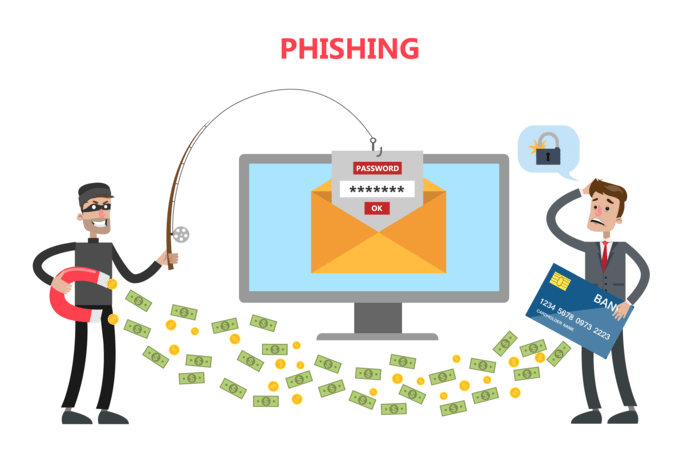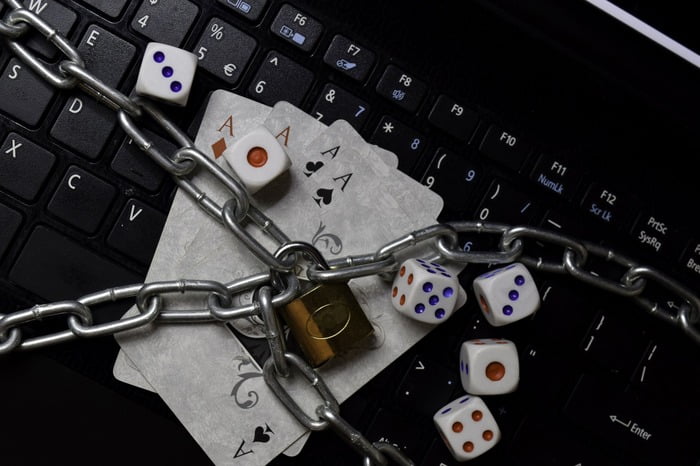Phishing on Gaming Apps: the Risks Associated and How to Avoid It

Mobile users across the world downloaded 55.6 billion gaming apps in 2022. This hardly comes as a surprise considering how app developers have flooded the market with ever-expanding genres—from shooting and adventure to RPG and simulation games—to spoil gamers with choice.
However, as the industry’s popularity surged, it has become a hotbed for scams. Among the many threats you can encounter today, phishing stands out for its high prevalence. But what risks does it pose, and what measures can you take to avoid it? Keep reading to find the answers.
The Risks of Phishing on Gaming Apps
If you are unfamiliar with phishing, let’s take a moment to understand what it means. In simple terms, phishing is the practice of obtaining identifiable or sensitive information with the use of deception.
Criminals can reach you on different mediums, including emails, phone calls, SMSs, and social media, to launch this type of scam. They will often imitate legitimate organizations or individuals to win your trust and steal your data.
Of course, the information they want can vary, from account credentials and social security numbers to credit card details. All these can create opportunities for them to make money.
But how can you experience a gaming-related phishing attack? For instance, scammers could impersonate the developer of a gaming app you have downloaded to your phone. Hiding behind this false identity, they could send you a phishing email to inform you about a recent security update. To ensure continued access to the app, they request you to log in using a link they have shared. But when you click, you are taken to a spoofed site set up to phish for your account username and password.
With the necessary login credentials, criminals can take over your gaming account and lock you out by changing the password. After that, they can make in-app purchases using saved credit card information and make money by re-selling them.
Your account could be worth a substantial amount if you have advanced to higher levels in the game. In such instances, criminals can easily change your profile name and sell your account at a hefty price.
There are countless other ways scammers could trick you into sharing personal data. They can, for example, share links that download malware without your knowledge. Once the malicious code gains entry to your phone, it could silently phish for valuable information stored on your device.
Some phishing scams involve promotional messages that offer access to unlimited games. All you need to do is share some personal information or enter your credit card details to pay a heavily discounted, one-time subscription fee.
Ultimately, depending on the scale of the phishing attack and the information compromised, your identity, money, privacy, and safety can all be at risk.
To make matters worse, criminals can share, exchange, and trade digital data infinite times. As a result, the repercussions of phishing can unfold over several years and even decades.
How Can You Avoid Phishing When Using Gaming Apps?
Adopting a cautious approach and remaining alert is critical for avoiding cyberscams.
When it comes to phishing threats, be particularly mindful of impersonations. Think twice before trusting anyone, no matter how legitimate they may appear.
Here are additional measures you can take to protect yourself from gaming app-related phishing:
- Check for unusual typos
Are there spelling or grammar mistakes in promotional messages or formal communications? Does the name of the company or game appear slightly different from what you are familiar with? All these can be red flags of fraud.
- Review email addresses
When you receive an unexpected email from a gaming app, compare its email address with the ones used in the past. Pay close attention to minor typos, such as an extra hyphen or a missing letter, which can hint at a scam.
- Look up contact numbers
If you get unsolicited gaming-related communication via an SMS or messaging app, reverse search the phone number on Nuwber to see whom it belongs to.
- Examine social media profiles
Sometimes, you can receive a phishing message on a social media platform. When this happens, visit the message sender’s profile and check how long the account has been active and how frequently they post, share, comment, or interact with other users. Review their profile information and photo, too.
A vague description, overly edited photo, short account history, and little to no engagement are telltale signs of a fraudulent profile.

- Ignore unsolicited links and downloads
Confirming the legitimacy of unverified links is incredibly difficult. You can hover the cursor on top of an email link to check the hyperlink attached to the text. But, this technique doesn’t always help you distinguish legitimate links from malicious ones. Besides, it doesn’t work with SMSs or social media DMs either.
So, avoiding links altogether is a safer option. The same applies to unsolicited downloads as well.
If you need to visit a particular website or page, keep it bookmarked for easy access. Or type it in directly in the URL bar without resorting to links shared by strangers.
- Be wary of hard-to-resist deals
Phishing scams frequently use too-good-to-be-true deals to entice gamers. So, avoid promotions and discounts that seem over the top or suspiciously attractive.
- Guard your personal information
Never divulge identifiable or confidential personal details without a justifiable reason. Avoid saving credit card information on apps or browsers, and be mindful of the permissions requested by gaming applications when you install them.
Moreover, keep your accounts safe with strong passwords. Multi-factor authentication is even better. In addition, protect mobile devices with reliable malware protection and enable automatic updates for all device software.
To Recap
The uber popularity of gaming apps has attracted millions of gamers and app developers while also gaining the attention of opportunistic scammers. Phishing, in particular, stands to threaten the privacy and security of gaming app users, increasing the risk of identity theft and financial fraud. So, while you indulge in your favorite mobile game, make your safety a top priority.






